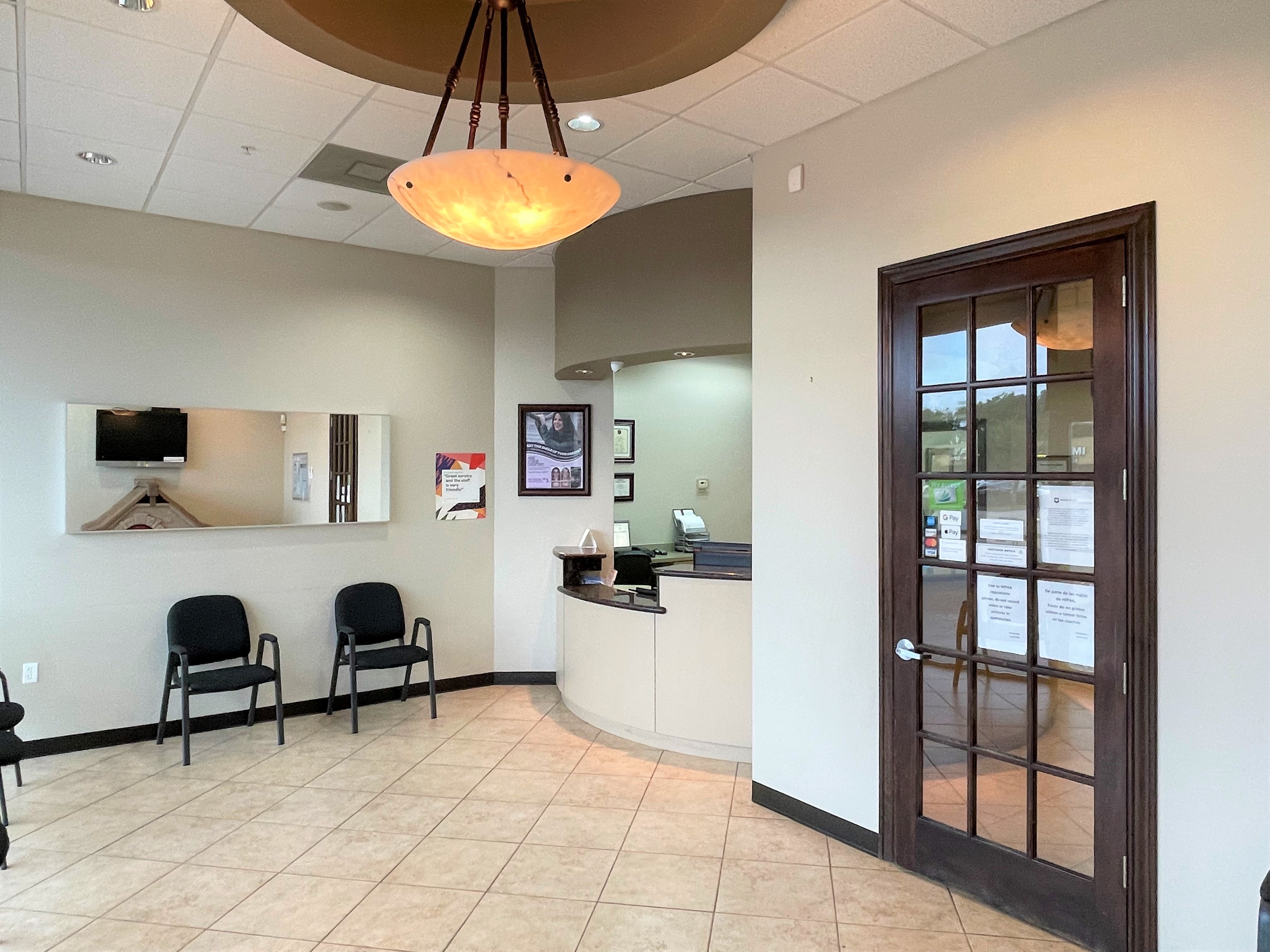- Home
- About
- Services
- Patient Education
- Do I Have Sleep Apnea
- Improve Your Smile for Senior Pictures
- What Can I Do to Improve My Smile
- When Is a Tooth Extraction Necessary
- Wisdom Teeth Extraction
- Alternative to Braces for Teens
- Do I Need a Root Canal?
- Oral Cancer Screening
- What Do I Do If I Damage My Dentures
- Which is Better Invisalign or Braces
- Dental Anxiety
- I Think My Gums Are Receding
- Oral Hygiene Basics
- What Should I Do If I Chip My Tooth
- Why Are My Gums Bleeding?
- Reviews
- Contact
- Request An Appointment
YOUR DENTIST IN HOUSTON, TX
WELCOME TO DENTAL BRIGHT
Dental Bright has been dedicated to providing exceptional dental care in a comfortable environment to families located in the Houston area since 1997. Our family dental practice takes great pride in our friendly and caring staff dedicated to providing exceptional dental care for you and your loved ones.
As a patient-centered practice, we prioritize your comfort and well-being during every visit. Step into our modern facility, where advanced dental technology and up-to-date procedures await you, ensuring the highest level of precision and effectiveness in all treatments.
We warmly welcome patients of all ages, making us an ideal choice for families seeking comprehensive dental care under one roof. At Dental Bright, we believe that maintaining optimal oral health is crucial for overall wellness, so let us be your partners on this journey toward a brighter smile!


DR. ALI FALAHAT, DDS
Dr. Ali Falahat is a gentle, caring dentist who believes in providing his patients with the highest quality dental treatment using the most advanced materials and procedures. With a deep commitment to comfortable and health-centered dentistry, Dr. Falahat takes the time to truly get to know each patient on a personal level.
Driven by his dedication to offering tailored solutions, Dr. Falahat ensures that every patient fully understands which treatment option best suits their individual requirements before proceeding. He genuinely looks forward to showing you how exceptional dentistry can positively impact your life – whether it be restoring your confident smile or improving overall oral well-being – all while ensuring your utmost comfort throughout every step of treatment.
Read More About Dr. Ali FalahatOur Services
Cosmetic Dentistry
Cosmetic dentistry refers to a branch of dentistry that focuses on enhancing the appearance of your teeth and smile. It involves various procedures designed to improve the overall aesthetics of your dental structure, resulting in a more confident and radiant smile.
Emergency Dentistry
Emergency dentistry pertains to the provision of immediate and specialized dental treatment for unexpected oral health issues that require prompt attention. Dental emergencies can encompass severe toothaches, knocked-out teeth, abscesses, broken or damaged teeth, and other oral problems demanding urgent intervention.
Invisalign
Invisalign aligners are a modern and innovative solution for straightening teeth, offering a discreet alternative to traditional metal braces. These aligners work by gently applying controlled force to gradually shift the misaligned or crowded teeth into their desired position.
Smile Makeover
A smile makeover treatment refers to a comprehensive dental procedure designed to improve the appearance of your teeth, gums, and overall smile. By combining various cosmetic dentistry techniques, a smile makeover procedure aims to address multiple aesthetic concerns simultaneously.
veneers
Veneers are thin yet durable shells that are custom-made to cover the front surface of teeth. These cosmetic dental prosthetics are designed to enhance the appearance of teeth by improving their shape, color, size, and overall alignment in a minimally invasive manner.
braces
Braces are appliances used to align and straighten teeth while correcting bite issues. They consist of brackets bonded to the teeth and connected by archwires, which apply gentle pressure over time. Braces work by gradually moving the teeth into their proper positions.
INSURANCE INFORMATION
We prioritize the convenience of our patients by offering a wide range of insurance options. To see whether your preferred insurance provider aligns with our network, contact us at 713-783-6060.
-
![dental healthcare]()
HOW OFTEN SHOULD I VISIT A DENTAL PRACTICE?
-
![Location symbol]()
WHERE ARE YOU LOCATED?
-
![Payment options]()
WHAT ARE MY PAYMENT OPTIONS?
Office Gallery
Say Hello
Location
5711 Hillcroft St Suite A2,
Houston, TX 77036
Office Hours
MON10:00 am - 7:00 pm
TUE9:00 am - 3:00 pm
WED10:00 am - 7:00 pm
THUClosed
FRI10:00 am - 7:00 pm
SAT9:00 am - 3:00 pm
SUNClosed










